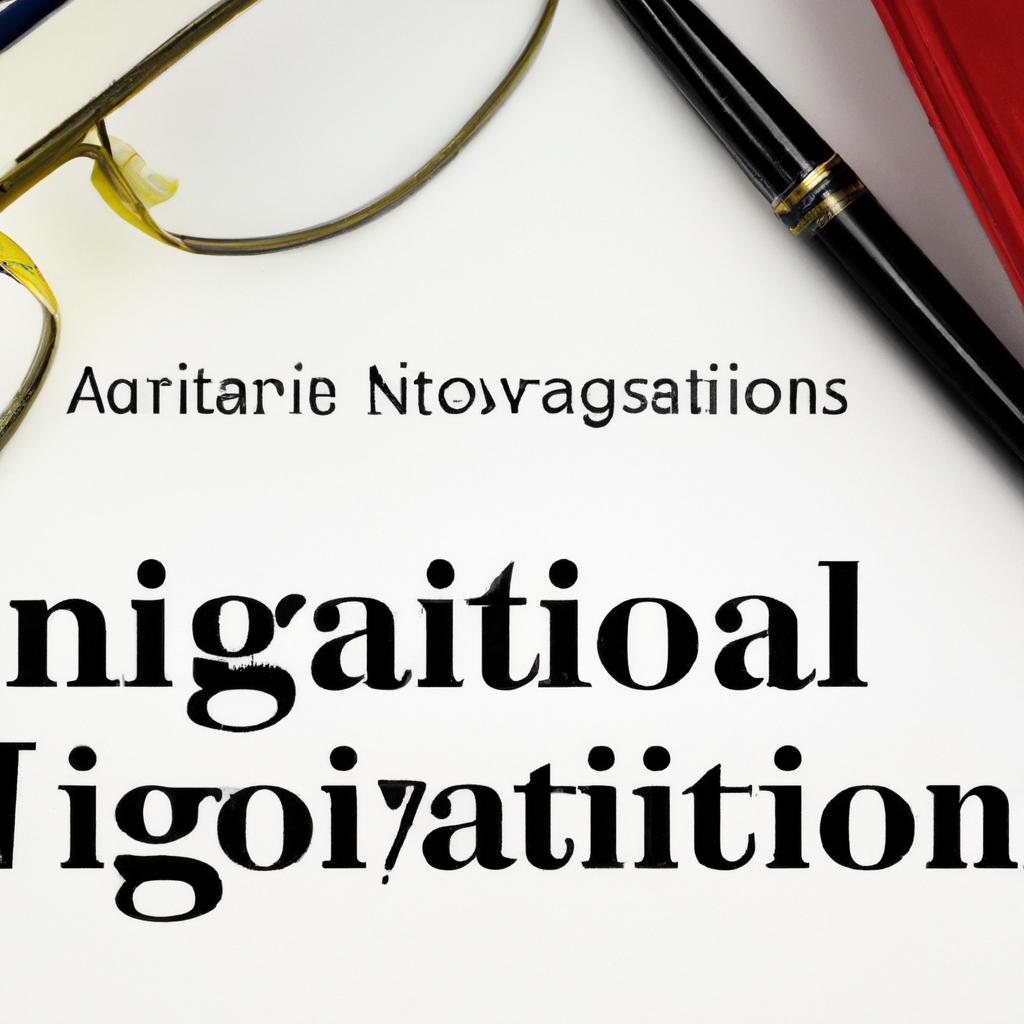In the intricate realm of estate planning and will administration, the question of whether a beneficiary can override a will is a matter of paramount importance. As seasoned practitioners in the field of estate law at Morgan Legal Group, based in the bustling metropolis of New York City, we are well-versed in the complex interplay between beneficiaries and testators’ final wishes. Join us as we delve into this nuanced legal issue with precision and clarity, unpacking the intricacies of beneficiary rights and the impact they may have on the distribution of assets.
Understanding the Legal Implications of Beneficiary Designations
When it comes to estate planning, many individuals are unaware of the legal implications of beneficiary designations and how they can override a will. It is crucial to understand that in certain situations, a beneficiary designation can supersede the instructions outlined in a will. This can have significant implications for the distribution of assets and may lead to unintended consequences if not carefully considered.
One common misconception is that a will always takes precedence over beneficiary designations. However, this is not always the case. In fact, assets such as life insurance policies, retirement accounts, and payable-on-death accounts typically pass directly to the named beneficiary, bypassing the probate process and any instructions in a will. It is essential to review and update beneficiary designations regularly to ensure that your assets are distributed according to your wishes and to avoid potential conflicts or challenges in the future.

Analyzing the Relationship Between Beneficiaries and Will Provisions
When it comes to the intricate web of estate planning, understanding the relationship between beneficiaries and will provisions is crucial. Beneficiaries are individuals or entities that stand to inherit assets or property outlined in a will. However, the question often arises – does a beneficiary override a will? It is essential to delve into the specifics of each case to determine the extent to which a beneficiary can impact the provisions of a will.
In most cases, beneficiaries named in a will have a strong claim to inherit assets as designated by the deceased individual. However, certain circumstances may arise where a beneficiary’s rights are challenged or disputed. Factors such as legal challenges, family disputes, or changes in circumstances can complicate the relationship between beneficiaries and will provisions. It is essential to seek legal counsel to navigate these complexities and ensure that the wishes of the deceased are carried out effectively.
Exploring Strategies to Ensure Consistency Between Beneficiary Designations and Wills
When it comes to estate planning, one of the common questions that arises is whether a beneficiary designation overrides a will. In many cases, the beneficiary designation does indeed override the will, making it crucial to ensure consistency between the two. This is important to avoid any potential conflicts or discrepancies that may arise after your passing. Here are some strategies to consider to ensure that your beneficiary designations align with the provisions in your will:
- Regular Review: It is important to regularly review both your beneficiary designations and your will to ensure they reflect your current wishes and circumstances.
- Legal Assistance: Seek the help of an experienced estate planning attorney to assist you in creating and maintaining consistency between your beneficiary designations and your will.
- Communication: Clearly communicate your wishes to your loved ones and beneficiaries to avoid any confusion or misunderstandings.
| Beneficiary Designation | Does it Override the Will? |
|---|---|
| Life Insurance Policies | Yes |
| Retirement Accounts | Yes |
| Payable-On-Death Accounts | Yes |

Navigating Potential Challenges and Disputes Arising from Conflicting Beneficiary Designations and Will Provisions
When conflicting beneficiary designations and will provisions arise, it can create a complex legal situation that requires careful navigation. One common question that often arises is whether a beneficiary designation overrides the provisions in a will. While the answer to this question may vary depending on the specific circumstances of each case, there are some key factors to consider.
It is important to remember that beneficiary designations and will provisions serve different purposes and may be governed by different legal principles. Here are some points to keep in mind when addressing potential challenges and disputes related to conflicting beneficiary designations and will provisions:
- Specificity: The more specific and clear the language in the will and beneficiary designation, the easier it will be to determine the intended distribution of assets.
- Timing: The timing of the beneficiary designation and the will can also impact the outcome, especially if changes were made close in time to the decedent’s passing.
- Legal advice: Seeking guidance from experienced estate planning attorneys can help navigate complex situations and ensure that your wishes are carried out effectively.
Q&A
Q: What does it mean for a beneficiary to override a will?
A: When a beneficiary is named in a specific account or asset, their rights to that property may take precedence over what is stated in a will.
Q: Can a beneficiary override a will’s instructions?
A: In some cases, yes. If a beneficiary has been designated for a specific asset, they may receive that asset even if the will states otherwise.
Q: How does the designation of a beneficiary affect the distribution of assets?
A: Naming a beneficiary ensures that specific assets are passed directly to that individual without going through probate, potentially overriding the instructions laid out in a will.
Q: Can a beneficiary challenge a will that does not include them?
A: Yes, beneficiaries who believe they should have been included in a will can contest its terms in court.
Q: What steps can be taken to prevent beneficiaries from overriding a will?
A: To prevent beneficiaries from overriding a will, it is important to review and update beneficiary designations regularly to ensure they align with the wishes outlined in the will.
Insights and Conclusions
In conclusion, the question of whether a beneficiary can override a will is a complex and multifaceted issue that often depends on the specific circumstances of each case. While beneficiaries do hold certain rights and can sometimes challenge the terms of a will, ultimately, the validity and enforceability of a will are generally upheld in most cases. It is important to seek the guidance of a qualified legal professional when navigating the intricacies of estate planning and inheritance to ensure that your wishes are carried out as intended. Thank you for reading and we hope this article has provided you with valuable insights into this important topic.


